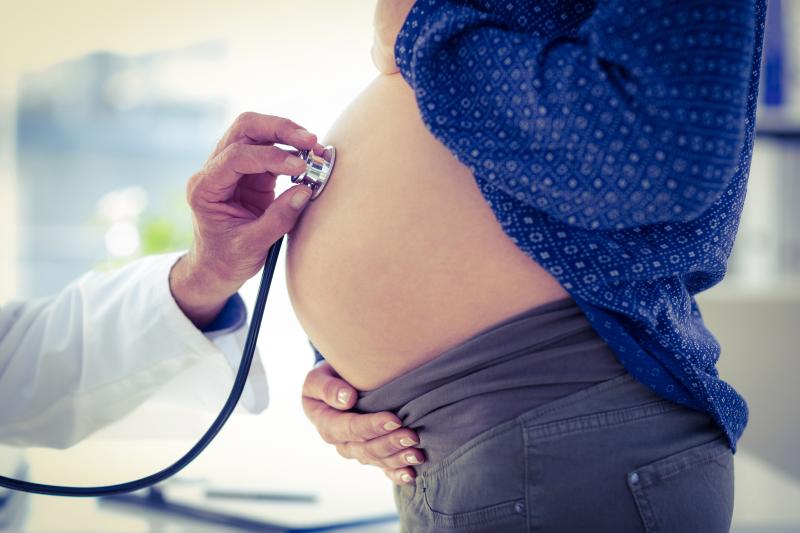Preterm births up in pregnant women with COVID-19





Pregnant women with the coronavirus disease 2019 (COVID-19) appear to show higher rates of preterm birth and caesarean deliveries, according to a new meta-analysis. COVID-19 does not seem to substantially affect other pregnancy outcomes.
“We urge obstetricians to continue reporting their data, especially that of asymptomatic patients or those with mild disease, so [we] are better able to understand this novel virus and hopefully improve outcomes,” researchers said.
Twenty-four studies were deemed eligible for the meta-analysis. These corresponded to a cumulative of 136 pregnant women aged 25–34 years, with gestational ages 30–40 weeks. Most women presented with fever and coughing. Almost a fifth of the participants had at least one other illness, such as hepatitis B, hypertension, or gestational diabetes. [Clin Infect Dis 2020;doi:10.1093/cid/ciaa828]
Researchers reported 94 births, of which 31 were delivered before 37 weeks of gestation and were defined as preterm. The resulting rate was 27.7 percent. Five newborns were considered early preterm, delivered before 34 weeks.
There were three foetal deaths, yielding a rate of 11.7 percent. These were joined by two neonatal deaths due to multiple organ failure and disseminated intravascular coagulation. One other neonatal death was reported but occurred immediately after delivery. Majority (63.7 percent) required admission into the neonatal intensive care unit.
The amniotic fluid, umbilical cord, and placental fluid were all tested for COVID-19 but all returned negative.
In terms of maternal outcomes, 76.3 percent underwent caesarean procedures, 87.7 percent received antibiotics, and 67.5 percent were given antivirals. Two women developed multiple organ failure and required ventilation and intubation. One mother succumbed to multiple organ failure and acute respiratory distress syndrome.
In pregnant mothers with COVID-19, “the perinatal risk is great, as the risk of prematurity and caesarean delivery are high,” the researchers said. “Interestingly, our study did not demonstrate significantly worsened outcomes in COVID-19–affected pregnant patients when compared to nonpregnant patients reported in the literature.”
Despite no clear evidence of vertical transmission, and despite the relatively good outcomes among newborns, the researchers expressed alarm at the high rate of premature births. “Prematurity in and of itself is the most common cause of morbidity and mortality in neonates worldwide, both short-term and long-term.”
However, important limitations still needed to be considered. These included the lack of high-quality data, incomplete documentation of patient history, and the failure to account for mild asymptomatic COVID-19 patients who did not require hospitalization. There was also only a small number of included studies, most of which were case reports or series.
“As this global pandemic continues to spread, there will be a need for additional information on the effects of COVID-19 on pregnant women and their infants,” the researchers said.
Sufficiently understanding the clinical presentations and outcomes of SARS-CoV-2 infection among pregnant women and their neonates, along with pathological and molecular characterization of the virus, is valuable in determining the disease trajectory within this subset of patients,” they added.